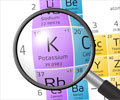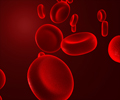Q: Which doctor should I consult for hypochloremia?
A: If you experience any of the above symptoms that can lead to low chloride levels, you can consult your primary healthcare provider or in cases of severe dehydration visit your nearby hospital. Further, depending on the underlying disease condition, you may be referred to a nephrologist, endocrinologist, gastrologist, or cardiologist.
Q: What is the reason of low chloride in blood?
A: Serum chloride level drops due to loss of body fluids caused by prolonged vomiting and diarrhea, intake of diuretics and nasogastric suction. Your kidney controls blood chloride levels. In cases of chronic kidney problems, chloride imbalances are seen.
Q: How do you add chloride to your diet?
A: The Food and Nutrition Board at the Institute of Medicine recommends 2.3 g daily intake of chloride in adolescents and adults aged 14 to 50 years. Requirements vary based on age, sex, and other factors.
Chloride is present in most of our foods and people probably consume more than necessary in the form of table salt. It is also found in many vegetables and foods such as salted meats, tomatoes, lettuce, celery, olives, and butter. In addition to this, also remember that consuming large amounts of baking soda or substantially more amount than the recommended dosage of antacids can cause low blood chloride.
Q: Why does hypochloremia cause metabolic alkalosis?
A: Metabolic alkalosis is a condition in which the pH of the tissue is elevated beyond the normal limit.
Prolonged vomiting, secretory diarrhea or nasogastric suctioning results in the loss of gastrointestinal chloride (hydrochloric acid) and metabolic alkalosis may develop as a result of gastrointestinal chloride loss. In such cases, extracellular volume is usually contracted, hypochloremia develops, and the urinary chloride level is usually less than 20 mEq/L.







